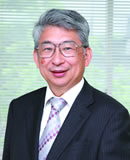Social Capital and Regional Learning Governance: A Japanese Perspective
Recently the use of a participatory approach encouraging various regional actors to engage in the process of developing regional projects has been institutionalized and promoted in the context of Japanese regional development. An interactive process among regional actors with various views and interests, however, could result in counterproductive conflicts preventing those actors from cooperating with each other towards regional growth. This lecture highlights the role of legitimacy capital, as a part of social capital in a business context, to effectively manage conflicts over regional development by promoting an alignment of various interests and opinions of regional agents with a socially legitimate ideal. Legitimacy capital, which involves rules, norms, reciprocal rights and obligations, is developed through a series of discourses among various actors in society. The lecture presents normative principles and conditions to sustain discourse system for developing legitimacy capital on the basis of discourse theories and investigates the role of legitimacy capital to sustain and promote regional learning among multiple stakeholders for local development from the perspective of discourse theory. Introducing the concept of discourse systems, it is pointed out that regional learning practices consist of micro discourses focusing on specific regional debate and macro discourses focusing on the whole discourse system, and that social capital plays important roles both for strengthening the bond of each discourse initiative (bonding social capital) and for bridging network connections between different discourse spheres (bridging social capital).
Lecture at NEMO2016
Date/Time: Monday, July 25, 2016 at 09:00

